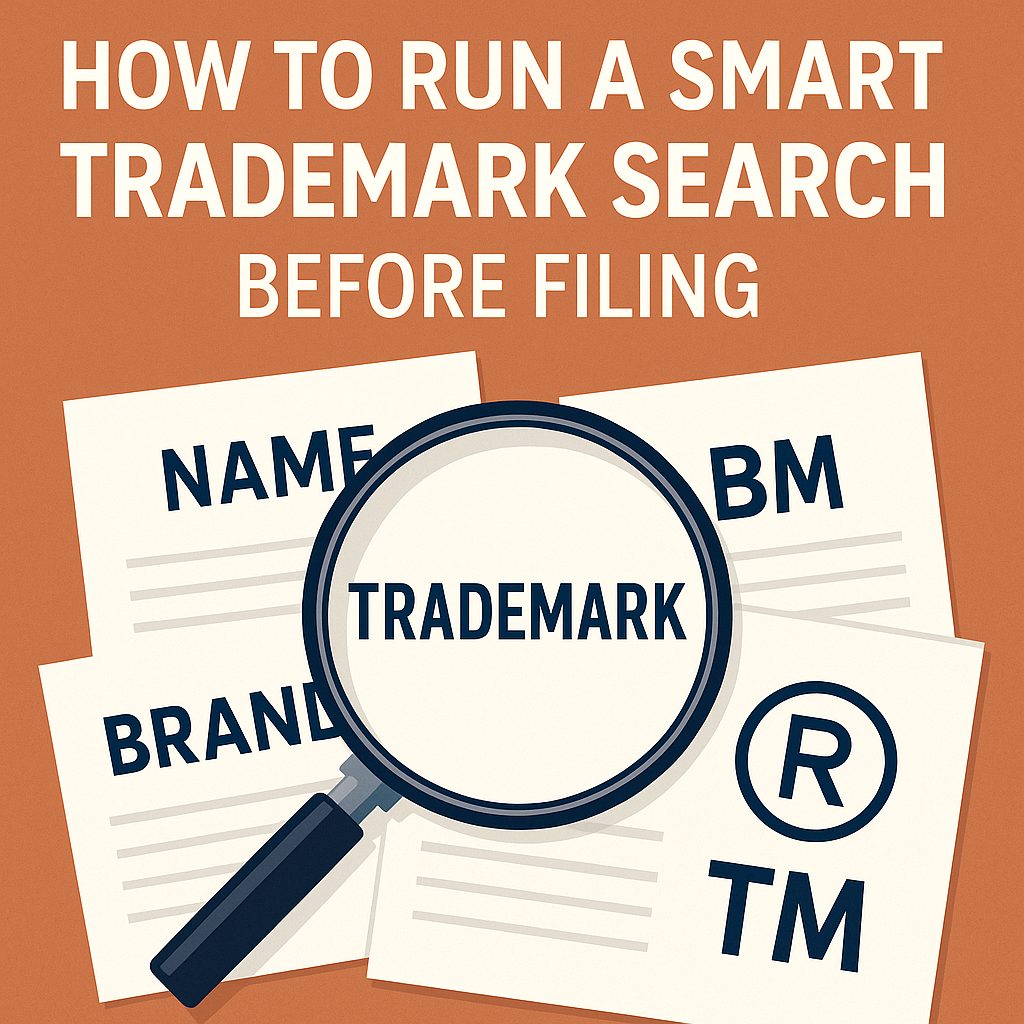How to Run a Smart Trademark Search Before Filing
Before you invest in a new name or logo, search first. A proper trademark search goes beyond a quick web query. It looks at federal and state registers, plus unregistered (common-law) uses in the marketplace. That extra diligence can prevent refusals, disputes, and costly rebrands.
Why Search Matters
- Avoid USPTO refusals: The Office will refuse marks that are confusingly similar to existing registrations or pending applications.
- Reduce legal risk: Overlaps invite cease-and-desist letters, oppositions, or infringement claims.
- Save time and budget: It’s cheaper to pivot names pre-filing than post-launch.
Three Layers of a Smart Search
- Federal register (USPTO): Search word marks and design marks. Review live and relevant dead records for similar sound, appearance, and meaning.
- State databases: Many smaller brands register locally; they can still block or complicate your plans.
- Common-law use: Scan websites, marketplaces, social media, directories, and industry sources for unregistered but active uses.
How to Evaluate Risk
- Similarity: Consider look, sound, and connotation—not just exact spelling.
- Relatedness: Ask whether consumers might think the goods/services come from the same source.
- Strength of the other mark: Famous or distinctive marks cast a long shadow.
- Channels of trade and buyers: Overlap in sales channels or audiences increases risk.
Best Practices
- Search early, search wide: Build searches into your naming process—don’t wait until launch day.
- Screen multiple candidates: Keep backup names so you can pivot fast if a conflict appears.
- Document findings: Save screenshots and notes; they help with strategy and future disputes.
- Get professional help: Attorneys use comprehensive tools and know the red flags examiners watch for.
Quick-Take Q&A
Is a Google search enough?
No. Google is a start, but you must check the USPTO register, state databases, and common-law uses to catch conflicts.
Do spelling tweaks avoid conflicts?
Not necessarily. Sound-alikes or similar meanings can still confuse customers and draw refusals.
Should I search logos, too?
Yes. Design marks can conflict even when words differ. Search word and design marks together.
If I only sell locally, do I still need a federal search?
Yes. Federal rights can impact your local use, and online sales erase geographic boundaries quickly.
Nathan Moore is a trademark attorney located in Nashville. Moore Law PC helps individuals and businesses successfully apply for and register trademarks nationwide.



